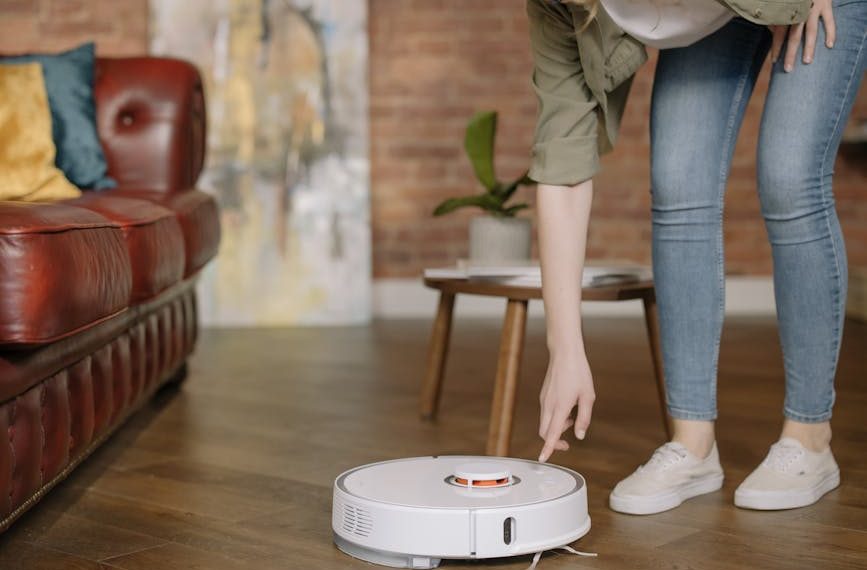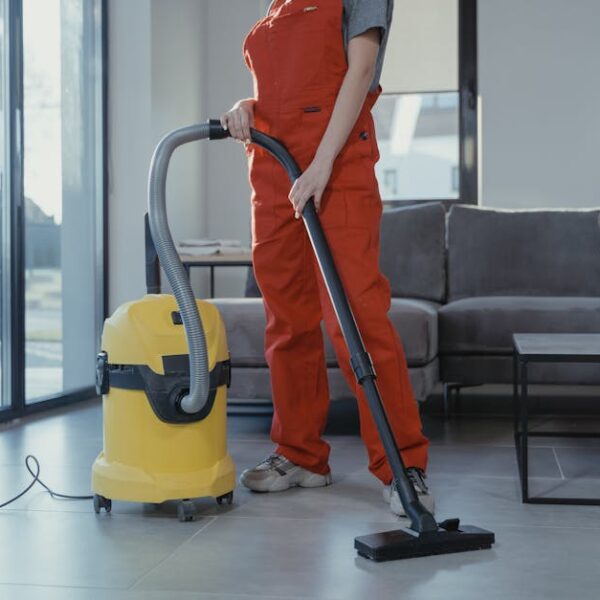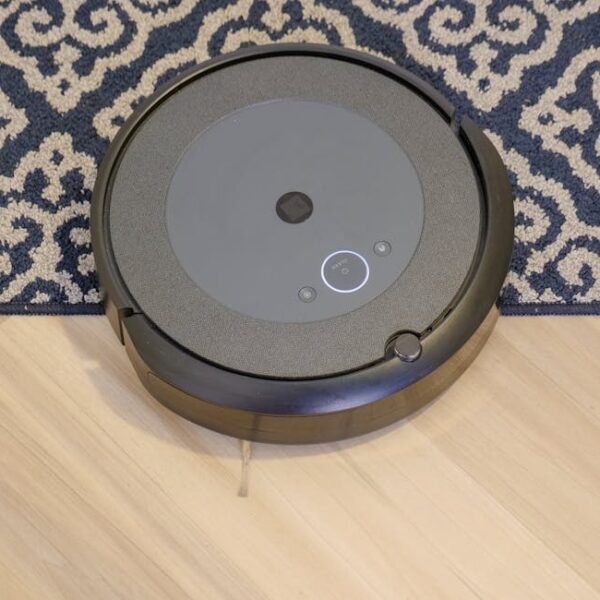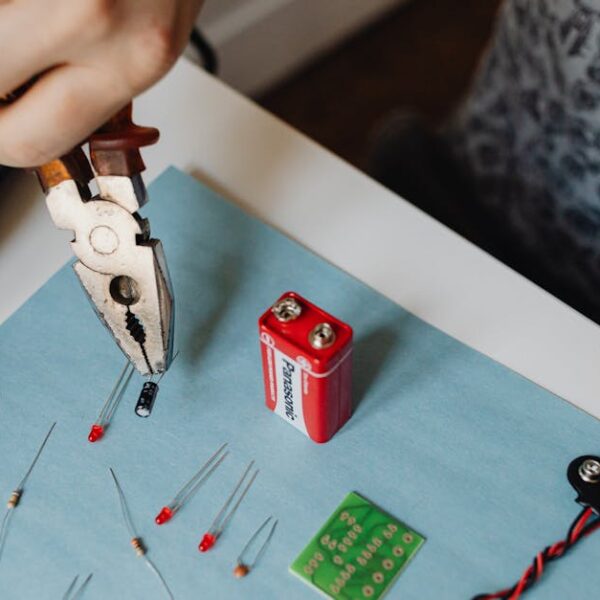When it comes to home appliances, Dyson stands among the leading brands, particularly for vacuum cleaners. However, like all appliances, Dyson vacuum cleaners aren’t exempt from wear and tear. One common issue faced by many users is blockages. While this happens frequently, it doesn’t mean it’s game over for your trusted Dyson. It’s crucial to understand why it happens, how to fix it, and preventive measures for future blockages.
Understanding Why Dyson Airways Get Blocked
Knowing why blockages occur is the first step towards effective resolution. Dyson vacuum cleaners may get blocked due to various reasons. Overuse can result in the accumulation of excess debris inside, obstructing the airway. Similarly, poor maintenance habits such as irregular cleaning can fast-track this build-up. Here are a few common causes:
- Excessive dust accumulation
- Large debris getting stuck
- Hair or pet fur entanglement
- Infrequent cleaning
Signs of a Blocked Vacuum Cleaner
A blockage in a Dyson vacuum cleaner manifests in several ways. If your Dyson airways are blocked, the cleaner might not perform as efficiently as it usually would. Look out for these signs:
- Reduced suction power: This one is quite apparent. If the vacuum isn’t picking up waste as effectively as before, there could be a blockage in the airways.
- Unusual noises: If the vacuum is making high-pitched or loud noises, it could be a sign of a blocked passage.
- Motor strain: An overworked and hot motor is often a clear indication that something isn’t right.
How to Fix a Blocked Dyson Vacuum Cleaner
Upon noticing any of these signs, the first course of action should be to locate and eliminate the blockage.
- Start by disconnecting your Dyson vacuum cleaner from the power source.
- Check all detachable parts such as the hose, nozzle, and filters for any obvious blockages.
- Probe the vacuum cleaner airways with an appropriate tool.
- Respectfully remove any debris or blockages found.
Pro Tip: Handle the vacuum gently during this process to avoid causing any internal damage.
Given that this process may need some technical know-how, let’s explore the pros and cons of fixing it yourself against taking it to a professional service center.
| Fix it Yourself | Professional Service Center | |
|---|---|---|
| — | — | — |
| Pros | Cost-effective, Fast if you have the know-how | Expert service, Efficient, No risk of causing further damage |
| Cons | Risk of causing further damage, Time-consuming if unfamiliar with the structure of the cleaner | Costs money, Might take time depending on their schedule |
Understanding and addressing a blockage is crucial, but taking preventive measures could save you the trouble in the first place. Let us delve into that in the next section.
Dyson Airways Blocked? Here’s How to Fix It
Ah, we’ve all been there. Your once reliable Dyson vacuum cleaner suddenly seems less efficient, and then you realize, it’s got a blockage. But hang on, don’t worry just yet! Let’s explore the reasons why this happens, and how to fix and prevent it in the future.
Understanding Why Dyson Airways Get Blocked
The most efficient vacuum could fail if it’s not properly maintained. Blockages in Dyson vacuums can be an unfortunate side effect of overuse, an accumulation of dirt or debris, or simply not cleaning the machine as regularly as needed.
Let’s look at a few common causes of a blocked Dyson vacuum:
- Overfilling the dust canister: Continuing to vacuum without emptying the dust canister can cause a blockage in the airways.
- Vacuuming up large objects: Accidentally vacuuming coins, toys, or excessively large debris could clog the airways.
- Infrequent cleaning: Neglecting to clean your vacuum regularly may result in dirt and dust build up leading to blockages.
Signs of a Blocked Vacuum Cleaner
A clogged vacuum cleaner usually gives off some signs. Spotting these early can help you fix the issue before it gets worse:
- Reduced suction power: Your vacuum isn’t picking up dirt as efficiently as it used to.
- Unusual noises: You hear strange or unusual sounds from your Dyson vacuum.
- Motor strain: The vacuum seems to be working harder and may become unusually hot.
How to Fix a Blocked Dyson Vacuum Cleaner
Decided to fix it yourself? Follow the steps below:
- Unplug your Dyson vacuum cleaner.
- Remove and check the dust canister for any blockages.
- Check the hose, wand, and airways.
- Remove any visible clogs using a straightened hanger or a broom handle.
Here are some pro tips to remember:
- Clean all parts with a dry cloth.
- Don’t forget to clean the brushes as they also collect lots of dust.
Let’s weigh the pros and cons of fixing it yourself vs. taking your vacuum to a service center:
| DIY Repair | Professional Repair |
|---|---|
| Cost-effective. | Could be expensive, depending on the problem. |
| Takes time and effort. | Saves personal time and effort. |
| Potentially damaging if not done correctly. | Guaranteed quality repair. |
Preventing Future Blockages in Your Dyson Vacuum Cleaner
Proactive care can prevent future blockages and interruptions. Here are a few maintenance best practices:
- Clean your vacuum cleaner regularly.
- Avoid sweeping up large debris or objects.
- Empty the dust canister before it’s full.
- Give your vacuum cleaner a rest when used extensively.
Pro tip: Regularly replacing filters can greatly improve the lifespan of your Dyson vacuum cleaner!
Maintenance and Care for Your Dyson Vacuum Cleaner
Keeping your vacuum cleaner in peak condition requires regular maintenance.
Here’s a checklist to remember:
- Empty the canister regularly.
- Clean the vacuum filters regularly (ideally every 3 months).
- Regularly check for any clogs or blockages.
- Avoid vacuuming liquids or wet materials.
And finally, remember that moderate and careful use of your vacuum cleaner, paired with regular maintenance, can help prolong its life and maintain optimal performance. Happy vacuuming!
Key Takeaway:
- Blockages in Dyson vacuum cleaners typically occur due to overuse, accumulation of debris, or poor maintenance.
- Common signs of a blockage include reduced suction power, unusual noises, and motor strain.
- To fix a blocked vacuum, disconnect the appliance from the power source, inspect all detachable parts, and appropriately remove any blockages.
- Regular maintenance of your Dyson vacuum cleaner can help prevent future blockages.
- Consider whether fixing the blockage yourself or taking it to a professional service center is most beneficial for you.
While blockages in Dyson vacuum cleaners may seem like big issues, they are common happenings that can be resolved with a little knowledge and effort. Keep your machine in top shape through regular maintenance practices and enjoy optimum performance for longer. Moreover, understanding, spotting, and adequately fixing blockages will enhance your ownership experience and extend your Dyson’s lifespan.
How Do I Address Blocked Airways in My Dyson Compared to Troubleshooting My ILIFE Robot Vacuum?
When addressing blocked airways in your Dyson, first check the filters and hose for obstructions. For effective maintenance, consult the manual for model-specific steps. Conversely, if you’re facing issues with your ILIFE vacuum, following some helpful ilife vacuum troubleshooting tips can quickly restore its performance and efficiency.
FAQs
Q: Can a blocked airway damage my Dyson vacuum cleaner?
A: Yes, a blocked airway can strain the motor and cause it to overheat, potentially leading to damage.
Q: How often should I clean my Dyson vacuum cleaner to prevent blockages?
A: Generally, it is advisable to clean your vacuum cleaner after every few uses, or at least once a month.
Q: Are blockages covered by Dyson’s warranty or do I need to pay?
A: You’ll need to check the terms of your specific warranty. Usually, typical wear and tear might not be covered.
Q: Can I still use my Dyson vacuum cleaner even if it’s blocked?
A: It is not advised to continue using a blocked vacuum as it overloads the motor and affects efficiency.
Q: Can a professional service center clean my Dyson vacuum better than I can?
A: A professional has the knowledge and tools to thoroughly clean and examine your vacuum, potentially achieving a more comprehensive cleanse than a DIY job.
You can always explore more posts on our website to understand the intricacies of various home appliances better. Don’t forget to share this article with anyone who may be struggling with a blocked Dyson vacuum cleaner.












